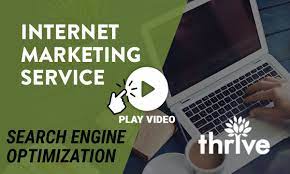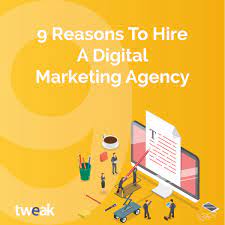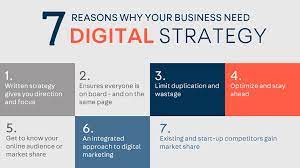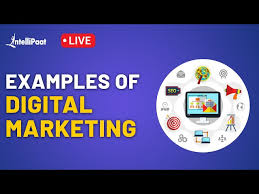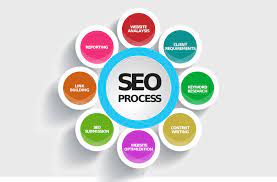The Power of SEO Content Marketing Services
SEO content marketing services have become a vital component of any successful digital strategy. In today’s competitive online landscape, businesses need to not only create high-quality content but also ensure that it is optimised for search engines to reach their target audience effectively.
What are SEO Content Marketing Services?
SEO content marketing services combine the principles of search engine optimisation (SEO) with content creation and promotion strategies. By incorporating relevant keywords, optimising meta tags, and creating valuable content that resonates with the target audience, businesses can improve their online visibility and drive organic traffic to their website.
The Benefits of SEO Content Marketing Services
Improved Search Engine Rankings: By implementing SEO best practices in your content marketing strategy, you can increase your website’s visibility on search engine results pages (SERPs) and attract more organic traffic.
Increased Website Traffic: Optimised content helps drive targeted traffic to your website, resulting in higher engagement and conversion rates.
Enhanced Brand Authority: Consistently producing valuable and relevant content establishes your brand as an authority in your industry, building trust with your audience.
Better User Experience: SEO-friendly content is not only appealing to search engines but also enhances the overall user experience on your website, leading to higher retention rates.
Choosing the Right SEO Content Marketing Service Provider
When selecting an SEO content marketing service provider, it is essential to look for a company that understands your business goals and target audience. A reputable provider will conduct thorough keyword research, create compelling content tailored to your brand voice, and implement proven SEO strategies to maximise results.
In Conclusion
SEO content marketing services play a crucial role in helping businesses stand out in a crowded digital space. By investing in quality content that is optimised for search engines, businesses can achieve higher visibility, attract more qualified leads, and ultimately drive growth.
Top 6 Benefits of SEO Content Marketing Services: Boost Rankings, Traffic, and Brand Authority
- Improved search engine rankings
- Increased website traffic
- Enhanced brand authority
- Better user experience
- Targeted audience engagement
- Cost-effective marketing strategy
Challenges of SEO Content Marketing Services: Navigating Time, Investment, and Expertise
- Time-Consuming
- Constant Algorithm Changes
- Competition
- Initial Investment
- Results Not Immediate
- Technical Expertise Needed
Improved search engine rankings
One of the key advantages of utilising SEO content marketing services is the significant enhancement in search engine rankings that businesses can achieve. By implementing effective SEO strategies, such as keyword optimisation, meta tag improvements, and high-quality content creation, companies can boost their visibility on search engine results pages. This improved ranking not only increases organic traffic to their website but also establishes a stronger online presence, ultimately leading to greater brand exposure and potential customer engagement.
Increased website traffic
One significant advantage of utilising SEO content marketing services is the potential for increased website traffic. By implementing SEO best practices and creating optimised content, businesses can attract a higher volume of targeted visitors to their website. This increase in traffic not only boosts overall engagement but also enhances the likelihood of converting visitors into customers. Ultimately, the strategic use of SEO content marketing can drive more qualified leads to a website, leading to improved brand visibility and business growth.
Enhanced brand authority
Enhanced brand authority is a significant benefit of SEO content marketing services. By consistently producing high-quality and relevant content that resonates with the target audience, businesses can establish themselves as industry leaders and build trust with their customers. When a brand is perceived as an authority in its field, it not only attracts more organic traffic but also fosters long-term relationships with customers who see the brand as a reliable source of information and solutions. This increased credibility can lead to higher conversion rates and overall business growth.
Better user experience
Implementing SEO content marketing services not only boosts search engine visibility but also enhances the overall user experience on a website. By creating content that is optimised for both search engines and users, businesses can provide valuable information in a user-friendly format, leading to improved engagement, increased time spent on the site, and ultimately higher conversion rates. This focus on enhancing user experience through SEO-driven content helps businesses build credibility, establish trust with their audience, and create a positive online brand presence.
Targeted audience engagement
One significant advantage of SEO content marketing services is the ability to engage with a targeted audience effectively. By creating content that is optimised for specific keywords and topics relevant to your target demographic, businesses can attract and retain the attention of the right audience. This targeted approach ensures that the content resonates with potential customers, leading to higher engagement levels, increased brand loyalty, and ultimately, improved conversion rates.
Cost-effective marketing strategy
One significant advantage of SEO content marketing services is their cost-effectiveness as a marketing strategy. Unlike traditional advertising methods that require substantial financial investment, SEO content marketing allows businesses to reach their target audience organically through valuable and optimised content. By creating high-quality content that resonates with users and ranks well on search engines, businesses can attract relevant traffic to their website without incurring hefty advertising costs. This cost-effective approach not only helps businesses save money but also provides long-term benefits by driving sustainable organic traffic and enhancing brand visibility online.
Time-Consuming
Implementing SEO content marketing strategies can be time-consuming due to the extensive research needed to identify relevant keywords, the effort required to produce high-quality content, and the ongoing monitoring of performance metrics. Businesses may find themselves investing a considerable amount of time and resources into executing effective SEO campaigns, which can impact other areas of their operations. Balancing the demands of creating valuable content while ensuring it is optimised for search engines can be a challenge and may require dedicated personnel or external support to manage effectively.
Constant Algorithm Changes
One significant drawback of SEO content marketing services is the constant algorithm changes implemented by search engines. These frequent updates pose a challenge for businesses and digital marketers as they need to adapt quickly to stay compliant with the latest SEO trends and requirements. Keeping up with these ever-evolving algorithms can be time-consuming and demanding, requiring continuous monitoring and adjustments to ensure that the content remains optimised for search engines. The dynamic nature of search engine algorithms adds a layer of complexity to SEO strategies, making it essential for businesses to remain agile and proactive in their approach to maintain their online visibility and rankings.
Competition
In the realm of SEO content marketing services, one significant drawback is the heightened competition that businesses encounter. As the practice becomes more widespread and businesses strive to rank for relevant keywords, standing out from competitors becomes increasingly challenging. The saturation of the digital landscape means that businesses must invest more effort and resources to differentiate themselves and secure prominent positions in search engine results pages. This intense competition underscores the importance of strategic planning and innovative approaches to effectively navigate the competitive environment of SEO content marketing.
Initial Investment
One notable drawback of SEO content marketing services is the initial investment required to implement an effective strategy. Businesses looking to leverage SEO for their content marketing efforts may need to allocate resources towards acquiring tools, hiring skilled professionals, and gaining expertise in the field. This upfront cost can be a barrier for some businesses, especially those operating on a tight budget or with limited resources. However, it is important to consider this investment as a long-term strategy that can yield significant returns in terms of increased online visibility, organic traffic, and brand authority over time.
Results Not Immediate
One significant drawback of SEO content marketing services is the time it takes to see measurable outcomes. Unlike some forms of marketing that may yield immediate results, the effectiveness of SEO strategies in driving organic traffic growth is a gradual process that demands patience. Businesses investing in SEO content marketing must understand that building a strong online presence and achieving sustainable results often requires a long-term commitment and consistent effort before tangible benefits become evident.
Technical Expertise Needed
One significant drawback of SEO content marketing services is the requirement for technical expertise. Delving into the intricacies of SEO, including meta tags, backlinks, and site structure, can be challenging and often demands specialised knowledge. Without a deep understanding of these technical aspects, businesses may struggle to effectively implement SEO strategies that yield optimal results. This complexity underscores the importance of partnering with experienced professionals who possess the necessary skills to navigate and leverage the technical nuances of SEO for maximum impact.



